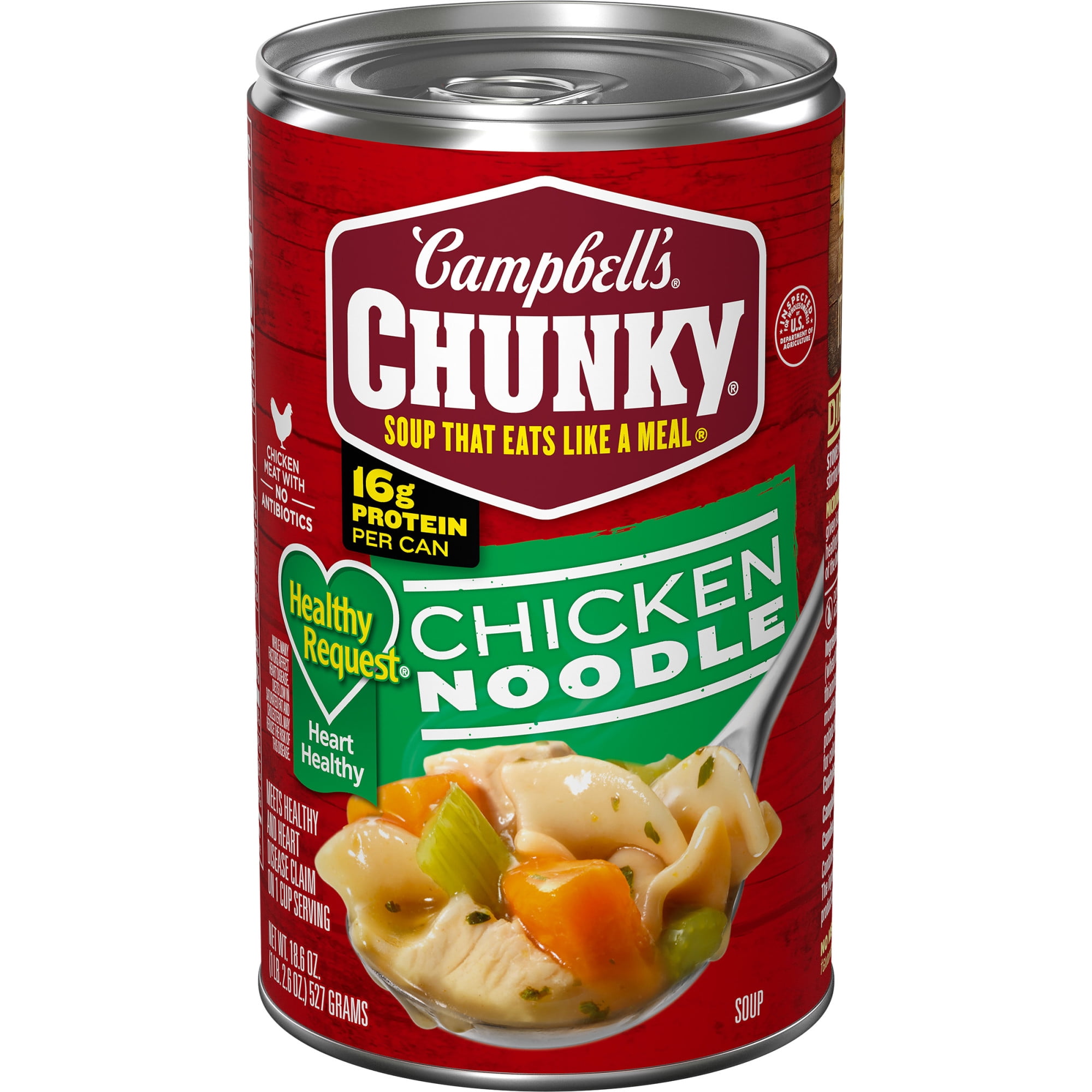Is Campbell's® Chunky™ Healthy Request® Healthy Request Chicken Noodle Soup Alpha-Gal?

Description
Savory, comforting flavor with pronounced umami notes; texture is hearty and chunky, featuring tender morsels and soft strands. Commonly used as a quick lunch, light evening meal, or soothing option when unwell. Reviewers cite convenience and consistent portioning, while occasionally mentioning variability in seasoning levels and texture consistency between batches.

Description
Savory, comforting flavor with pronounced umami notes; texture is hearty and chunky, featuring tender morsels and soft strands. Commonly used as a quick lunch, light evening meal, or soothing option when unwell. Reviewers cite convenience and consistent portioning, while occasionally mentioning variability in seasoning levels and texture consistency between batches.
Ingredients
Water, Chicken Stock, Carrots, Chicken Meat, Enriched Egg Noodles (Wheat Flour, Eggs, Egg Whites, Wheat Protein Isolate (Wheat Gluten, Phosphate, Lactic Acid, Sulfites), Niacin, Ferrous Sulfate, Thiamine Mononitrate, Riboflavin, Folic Acid), Celery, Contains Less Than 2% Of: Modified Food Starch, Chicken Fat, Potassium Chloride, Yeast Extract, Salt, Flavoring, Sugar, Carrageenan, Vegetable Oil, Potato Starch, Dehydrated Chicken Broth, Canola Oil, Spice, Dehydrated Onions, Beta Carotene For Color, Lactic Acid, Disodium Inosinate, Disodium Guanylate, Celery Extract, Onion Extract, Garlic Extract
What is a Alpha-Gal diet?
An Alpha-Gal diet eliminates mammalian meat and products containing mammalian-derived ingredients to prevent allergic reactions in people with alpha-gal syndrome. This includes beef, pork, lamb, dairy products, gelatin, and certain medications derived from mammals. The condition involves a specific sugar molecule found in most mammals, often triggered after a tick bite. People may experience delayed allergic reactions 3-6 hours after consuming trigger foods. The diet focuses on safe alternatives like poultry, fish, and plant-based proteins. When followed carefully, often with guidance from an allergist or dietitian, it can prevent serious reactions while maintaining adequate nutrition.


